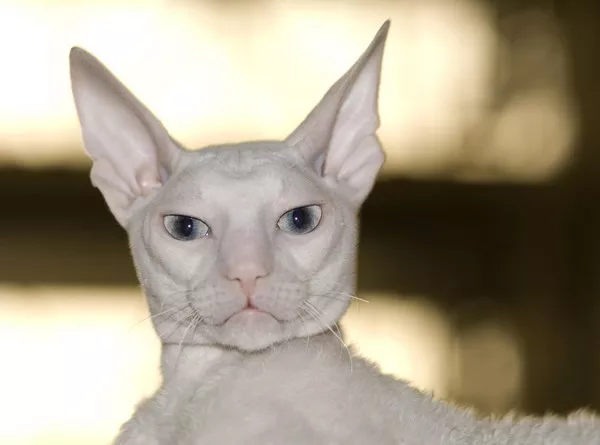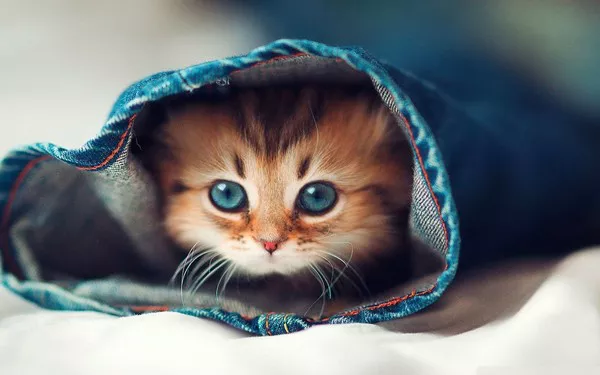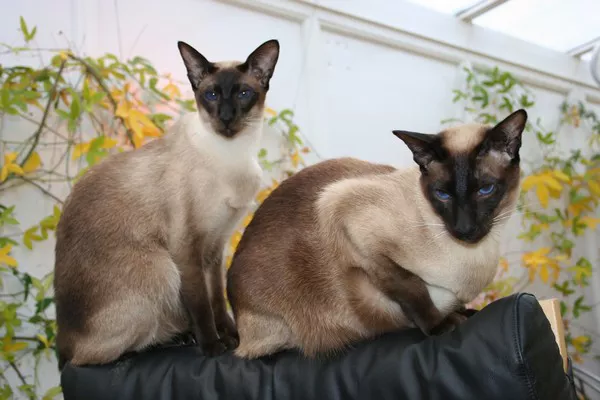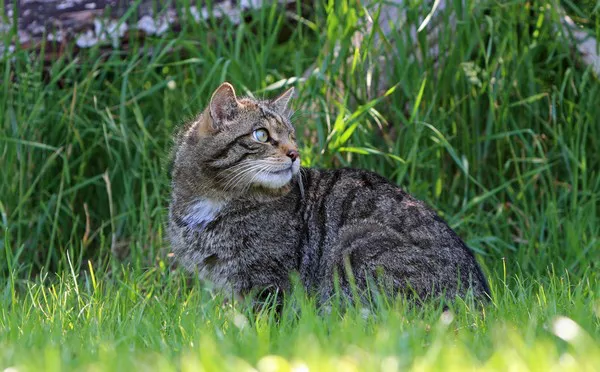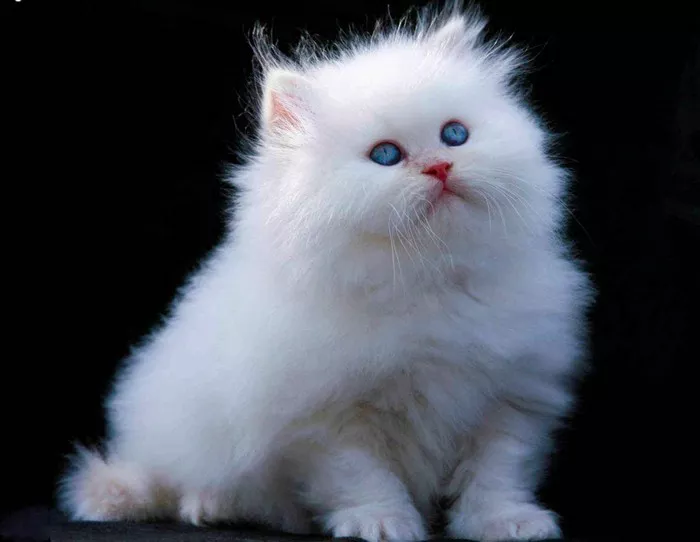The Cornish Rex, a distinctive breed known for its soft, wavy coat and slender build, is not only visually striking but also possesses a unique personality and behavioral profile. These cats are often described as playful, affectionate, and intelligent, making them a favorite among cat enthusiasts. This article explores the behavior of the Cornish Rex in detail and provides comprehensive training tips for prospective and current owners.
Cornish Rex
The Cornish Rex is a breed that originated in Cornwall, England, in the 1950s. Their most distinguishing feature is their curly coat, which is the result of a genetic mutation. This breed is also characterized by its slender body, large ears, and a playful, inquisitive nature. Cornish Rex cats are often compared to kittens due to their boundless energy and playful antics, which persist well into adulthood.
Behavioral Traits of Cornish Rex Cats
Playfulness and Energy
One of the most notable traits of the Cornish Rex is its high level of playfulness. These cats are incredibly energetic and enjoy engaging in various activities, from chasing toys to climbing furniture. Their agility and athleticism are often on display as they leap and bound around the house.
Interactive Play: Cornish Rex cats thrive on interactive play. They enjoy games that involve chasing and pouncing, such as fetch or laser pointer activities. These cats often exhibit a dog-like tendency to retrieve toys, bringing them back to their owners for another round of play.
Affection and Social Nature
Cornish Rex cats are known for their affectionate and social behavior. They form strong bonds with their human companions and enjoy being involved in household activities. These cats often follow their owners from room to room, seeking attention and interaction.
Lap Cats: Despite their high energy levels, Cornish Rex cats also appreciate downtime with their owners. They are known to be lap cats, enjoying cuddles and petting sessions.
Sociable with Other Pets: Cornish Rex cats are generally friendly towards other pets, including dogs and other cats. Their social nature makes them adaptable to multi-pet households.
Curiosity and Intelligence
Cornish Rex cats are highly intelligent and curious. They love exploring their environment, investigating new objects, and figuring out how things work. This intelligence makes them quick learners, but it also means they require mental stimulation to prevent boredom.
Problem Solvers: These cats enjoy solving puzzles and learning new tricks. Providing them with interactive toys and engaging activities can help satisfy their intellectual curiosity.
Vocalization
Cornish Rex cats are known to be quite vocal. They communicate with their owners using a range of sounds, from soft purrs to louder meows. This vocalization is often used to express their needs and desires, such as asking for food, attention, or playtime.
Training Tips for Cornish Rex Cats
Given their intelligence and eagerness to interact, Cornish Rex cats can be trained effectively using positive reinforcement techniques. Here are some training tips to help you manage and train your Cornish Rex:
1. Positive Reinforcement
Positive reinforcement is the most effective training method for Cornish Rex cats. This involves rewarding your cat with treats, praise, or playtime whenever they exhibit desirable behavior.
Treats and Rewards: Use small, tasty treats to reward your cat immediately after they perform a desired behavior. This helps reinforce the behavior and encourages them to repeat it.
Consistency: Be consistent with your rewards. If you want your cat to learn a specific behavior, such as using a scratching post, make sure to reward them every time they use it correctly.
2. Basic Commands
Teaching your Cornish Rex basic commands can help with managing their behavior and keeping them mentally stimulated.
Sit Command: Start by holding a treat above your cat’s head. Slowly move the treat backward, causing your cat to sit down to keep the treat in view. Once they sit, immediately give them the treat and praise them. Repeat this process until your cat sits on command.
Come Command: Use a specific sound, such as a whistle or a clicker, to call your cat. When they come to you, reward them with a treat and praise. Practice this command in different areas of your home to reinforce it.
3. Litter Box Training
Litter box training is essential for any cat owner. Cornish Rex cats are generally clean animals and usually take to litter box training easily.
Choosing the Right Litter Box: Ensure the litter box is appropriately sized and placed in a quiet, accessible location.
Positive Reinforcement: If you see your cat using the litter box, reward them with a treat and praise to reinforce the behavior.
Consistency: Keep the litter box clean and maintain a consistent routine to encourage regular use.
4. Scratching Post Training
To prevent your Cornish Rex from scratching furniture, provide appropriate scratching posts and train them to use these instead.
Placement: Place scratching posts in areas where your cat likes to scratch, such as near their favorite resting spots.
Encouragement: Encourage your cat to use the scratching post by rubbing catnip on it or placing toys nearby. Reward them with treats and praise when they use the post.
5. Clicker Training
Clicker training is a popular method for training cats, including the Cornish Rex. It involves using a clicker to mark desired behaviors, followed by a reward.
Introducing the Clicker: Start by clicking the clicker and immediately giving your cat a treat. Repeat this until your cat associates the clicker sound with a reward.
Training Sessions: Use the clicker during training sessions to mark desired behaviors. For example, click when your cat sits on command, then give them a treat.
See Also: Do Bombay Cats like to Be Held?
Addressing Common Behavioral Issues
Like all cats, Cornish Rexes can exhibit behavioral issues that may require intervention. Here are some common issues and tips on how to address them:
1. Biting and Scratching
Biting and scratching can be a sign of overstimulation or play aggression.
Avoid Overstimulation: Pay attention to your cat’s body language and stop petting or playing if they seem overstimulated.
Redirect Play Aggression: Use toys to redirect your cat’s play aggression away from your hands and feet. Interactive toys that mimic prey can help satisfy their hunting instincts.
2. Excessive Vocalization
While Cornish Rex cats are naturally vocal, excessive meowing can indicate a problem.
Attention Needs: Ensure your cat’s needs are met, including food, water, and companionship. Spend quality time with your cat each day.
Health Check: If excessive vocalization persists, take your cat to the vet to rule out any health issues.
3. Destructive Behavior
Destructive behavior, such as chewing on cords or furniture, can be a result of boredom or anxiety.
Provide Enrichment: Ensure your cat has plenty of toys and activities to keep them mentally stimulated. Rotate toys regularly to keep them interesting.
Environmental Enrichment: Create an engaging environment with climbing trees, perches, and scratching posts.
Creating a Stimulating Environment for Your Cornish Rex
A stimulating environment is crucial for the well-being of your Cornish Rex. Here are some tips to create an enriching home for your cat:
1. Vertical Space
Cornish Rex cats love to climb and explore. Providing vertical space can help satisfy this instinct.
Cat Trees and Perches: Invest in cat trees and perches that offer climbing opportunities and resting spots at different heights.
Shelves and Wall Units: Install shelves and wall units that your cat can climb and explore.
2. Interactive Toys
Interactive toys are essential for keeping your Cornish Rex mentally stimulated.
Puzzle Toys: Use puzzle toys that challenge your cat to think and solve problems to obtain treats or toys.
Laser Pointers: Engage your cat in play with laser pointers, but ensure to provide a physical toy to catch at the end of the session to prevent frustration.
3. Social Interaction
Social interaction is important for the social Cornish Rex.
Playtime: Dedicate time each day for interactive play with your cat.
Companionship: Consider adopting another pet to provide companionship if your Cornish Rex is often alone.
4. Safe Outdoor Access
Providing safe outdoor access can enrich your cat’s life.
Catios: Build or buy a catio (cat patio) to give your cat safe outdoor access.
Harness Training: Train your cat to walk on a harness and leash for supervised outdoor exploration.
Health and Grooming Needs
Maintaining the health and grooming needs of your Cornish Rex is vital for their overall well-being.
1. Regular Vet Check-ups
Regular veterinary check-ups are essential to monitor your cat’s health and prevent potential issues.
Vaccinations and Parasite Control: Ensure your cat is up-to-date with vaccinations and parasite control.
Dental Care: Regular dental check-ups and cleanings can prevent dental issues.
2. Grooming
Despite their short coats, Cornish Rex cats still require grooming.
Brushing: Brush your cat’s coat weekly to remove loose hairs and prevent matting.
Bathing: Cornish Rex cats may require occasional baths to keep their skin and coat healthy.
Nail Trimming: Trim your cat’s nails regularly to prevent overgrowth and reduce the risk of scratching.
3. Diet and Nutrition
A balanced diet is crucial for maintaining your Cornish Rex’s health.
High-Quality Food: Provide high-quality, protein-rich cat food to support their active lifestyle.
Portion Control: Monitor your cat’s weight and adjust portion sizes as needed to prevent obesity.
Conclusion
The Cornish Rex is a unique and engaging breed known for its playful, affectionate, and intelligent nature. Understanding their behavioral traits and providing appropriate training can enhance the bond between you and your cat, ensuring a harmonious and fulfilling relationship. By using positive reinforcement, creating a stimulating environment, and addressing any behavioral issues promptly, you can help your Cornish Rex thrive.
With the right care, training, and attention, Cornish Rex cats make wonderful companions who bring joy and entertainment to any household. Their distinctive personality and boundless energy make them a delight to live with, and their affectionate nature ensures a strong and lasting bond with their human families.

